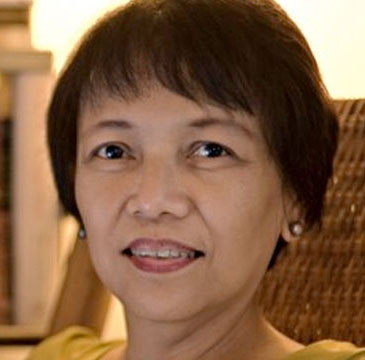SUMMARY
This is AI generated summarization, which may have errors. For context, always refer to the full article.

Why did I not have a completely joyful feeling watching, on TV, the amazingly huge crowds in Tahrir Square in the days leading to the ouster of President Mohammed Morsi? For 4 days, millions of protesters filled up the streets of Cairo in a resounding show of zero confidence against their leader.
I felt one with the millions of Egyptians who packed the famous meeting place but, at the same time, apprehensions rippled in my mind. The memory of Edsa 2, our own “people power,” gave me this sense of unease.
Fifteen years after we proudly showed the world we could depose a dictator, we did it again in 2001. This time, the circumstances were not as stark—evil ruler vs. pure housewife—as in 1986. Things were not in easy shades of black and white. But we had to get rid of Joseph Estrada, who brought disgrace to Malacañang, bringing his shady, wheeling-and-dealing friends to midnight meetings right in the halls of power.
Sure, we yanked out a corrupt president with a flamboyant lifestyle and uncouth company. But we replaced him with someone who turned out to be as corrupt, if not more.
In the case of Egypt, it’s been only 2 years since they toppled their authoritarian leader and gave the Arab Spring its great momentum. Hosni Mubarak, a former military officer, ruled the country with an iron hand for almost 30 years.
In 2011, in what turned out to be a relatively short time, an unprecedented 18 days of rage brought change to Egypt. Massive crowds voted with their feet against Mubarak. The Egyptians were finally suffused with the scent of democracy but, while lively and sparkling, it turned out to be fleeting.
It’s complicated
Morsi was Egypt’s first freely elected president. On him lay a historic role, to lead Egypt into a full democracy.
But as many reports show, Morsi was a big disappointment. The Guardian reported that “Morsi had been at odds with virtually every institution in the country, including leading Muslim and Christian clerics, the judiciary, the armed forces, the police and intelligence agencies.”
Popular anger was fueled by Morsi’s moves of “giving too much power to the Muslim Brotherhood and other Islamists.” Many say he had failed to deal with Egypt’s mounting economic problems. These twin errors led to his downfall.
In his final days, key allies abandoned him. Even Morsi’s own security, The Associated Press reported, did not lift a hand to defend him.
The case of Egypt is more complicated, though. It is a society with strong secular leanings and a history of a very powerful military. Any display of favoring one group, in Morsi’s case, the Muslim Brotherhood, triggered alarm bells.
But the military’s intervention—the army physically took Morsi out of his office and brokered the transition —was generally welcomed by the Egyptians. As I write this, the supreme court chief justice is still the country’s interim president.
I fear, though, that the military has strengthened its position because of this crucial role. Others have called this latest popular revolt a “military coup.” Memories of the series of failed coups during the presidency of Cory Aquino are hard to forget. The most fatal was in 1989; we almost lost our hard-won democracy.
Lessons from Manila
After Edsa 2, many who joined the 2 “ people power” revolts went into a reflective mode and expressed weariness about changing leaders through street protests. There was a lot of talk about focusing on building institutions, spending time and energy on organizing to strengthen public accountability rather than planning on the next demonstration.
The idea was that, in the long term, government institutions should be at the frontline of delivering services no matter who sits in Malacañang, no matter the leader’s political color. Public interest should be the north star of these agencies, no matter what. This means the bureaucracy is professional, they are hired because of merit and not because of political backing.
As part of this new drive and thinking, a number of personalities from the ranks of civil society joined government, both as leaders and members of the rank and file.
We saw civil society groups engaging with government. A number of NGOs got together, for instance, and partnered with the Office of the Ombudsman, then under Simeon Marcelo, to have a more effective anti-corruption campaign. They were given access to information, they saw the processes up close, and became a better watchdog.
“People Power,” we all know, is only the beginning of change. There’s a lot of hard work to do, a lot of planning and consensus building, a lot of strengthening of political parties and institutions, and a lot of battles to face.
After Edsa 1, the military had to be tamed and, for many years now, the men in uniform have been back in the barracks. After Edsa 2, institutions had to be energized. And that’s still a work in progress. – Rappler.com
Add a comment
How does this make you feel?
There are no comments yet. Add your comment to start the conversation.